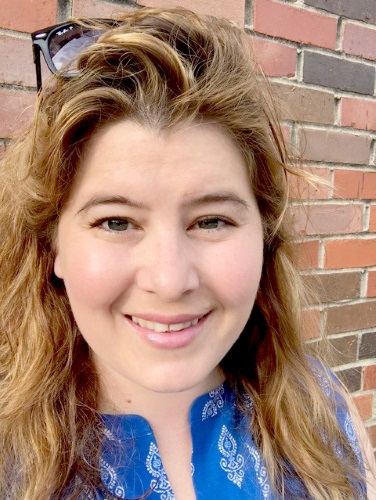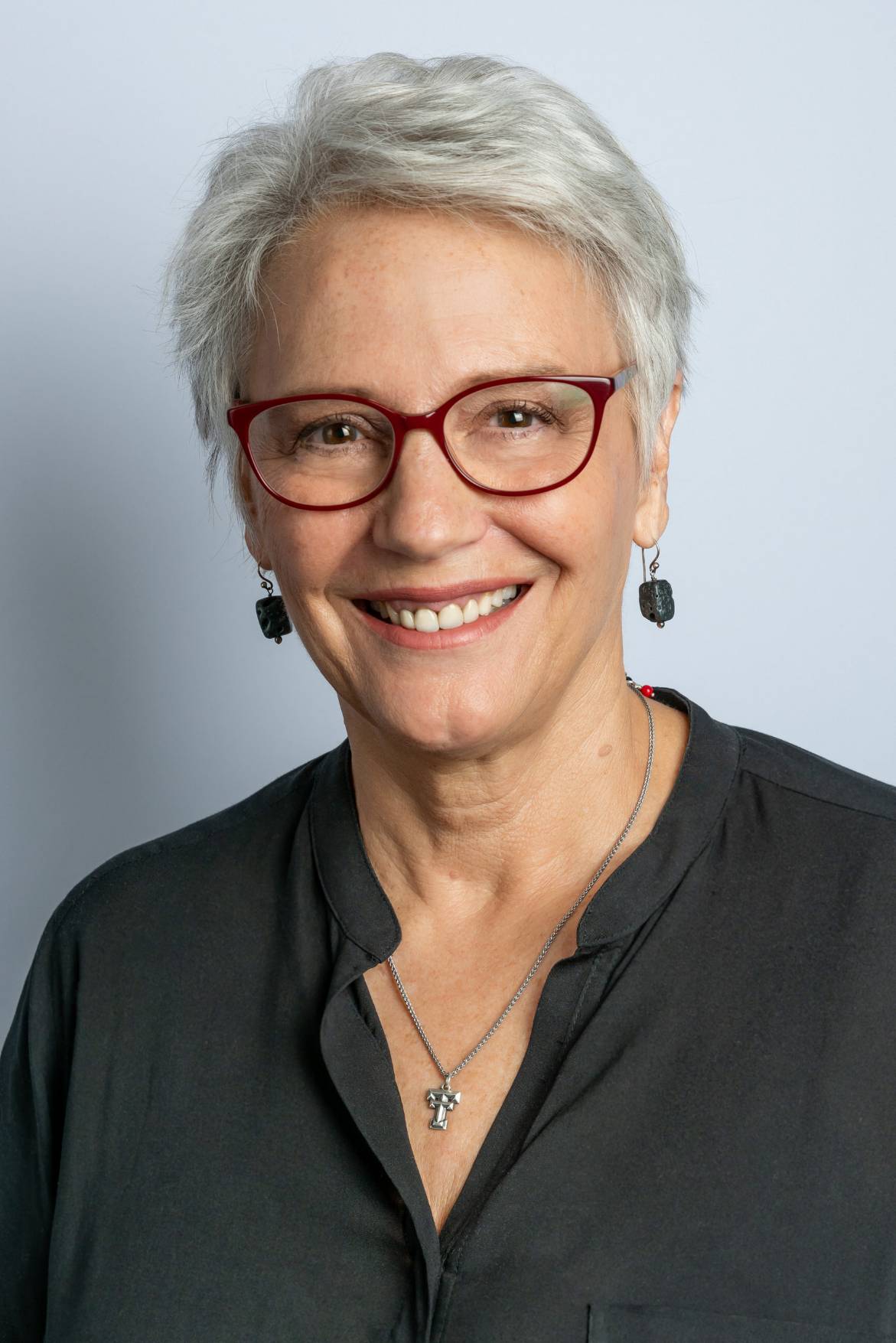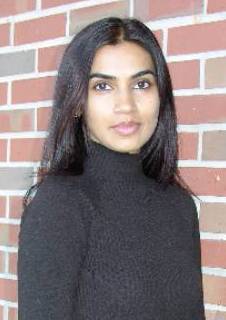Research Spotlight on Women Faculty: Raychel Vasseur, Gail Bentley, and Jyotsna Sharma
March 13, 2020 |
During March, Texas Tech is celebrating women faculty who exemplify excellence in research, scholarship, creative activity, teaching, and mentoring.
Raychel Vasseur
Assistant Professor; Department of Classical & Modern Languages & Literatures

Vasseur's research interests include study abroad as a context for L2 (second language) learning, L2 willingness to communicate, the development of intercultural (communicative) competence, and L2 oral proficiency development.
What inspired you to work in your field/area of expertise?
I started teaching Spanish in the first semester of my MA program in Spanish language and pedagogy at the University of Delaware. I knew very little about language teaching, and I was still very much a Spanish language learner despite my undergraduate Spanish major and five months of study abroad. My first semester of teaching fortunately coincided with my first Second Language Teaching Methods course, which provided me the space to reflect on my experiences as a language teacher and a language learner. It was the combination of the students in my beginning Spanish courses and my second language pedagogy professors who inspired me to continue to study second language acquisition. My research on study abroad started with my own experiences studying abroad during my undergraduate and master's programs. When as a doctoral student I had the opportunity to read the research on language learning and the development of intercultural communicative competence during study abroad, I started to make connections between my experiences and what I was reading. That sparked my interest in this field and my desire to conduct my own research.
Who inspired you to pursue academia?
When dreams of medical school came crashing down (I didn't study enough in Organic Chemistry), I got some good advice from an Honors College advisor. I was interested in working with students in higher education; the advisor suggested that rather than graduate work in higher education, I should consider getting a Ph.D. in an area I was interested in. A combination of my interest in Spanish and the discovery that I could be paid on-the-job training as a Spanish teaching assistant put me on a path that turned out to be perfect. When the professor in my research course said our field, I started to believe I could become a scholar. Before this I doubted I was good enough to continue past a master's degree. Shortly thereafter I met the person who would become my Ph.D. advisor. She inspired me time and time again, instilling the value not only of scholarship, but also of being a whole person during graduate school and now as a faculty member. She modeled the importance of taking a strong position when needed, and of compromising when that was better. I try to model her example since she was, and still is, my inspiration.
What would you tell your female students interested in pursuing an academic career?
- Find a mentor or two, both inside and outside your department.
- Females are being awarded Ph.D.s at a higher rate than ever (higher than men) but are awarded tenure track jobs, tenure, and jobs in administration at much lower rates. You will face many challenges in establishing yourself in academia. It's better to be aware of this and prepare for them in advance.
- Take care of your mental and physical health throughout the process.
- Cultivate friendships and relationships inside and outside of academia.
- When you get requests that your male colleague might not get (e.g., raise a final grade, make coffee for a department event), ask yourself (or perhaps even ask the individual) Would you be asking me to do this if I were a man? and respond accordingly.
- Females do a large majority of the service and emotional labor in their work groups. Be aware of this, and learn to set boundaries even if it feels unnatural or uncomfortable to do so.
- Protect your time. Remember that your time is just as important as that of the person who is asking you to give some of it up.

Gail Bentley
Instructor; University Studies
 Bentley is a full-time instructor in the Integrative Studies division of University
Studies and a Licensed Professional Counselor. Her research interests reflect her
diverse background and include parenting issues, marriage education, and substance
use.
Bentley is a full-time instructor in the Integrative Studies division of University
Studies and a Licensed Professional Counselor. Her research interests reflect her
diverse background and include parenting issues, marriage education, and substance
use.
What inspired you to work in your field/area of expertise?
As a therapist I often found myself seeking a deeper understanding about the "why" of human behavior. Returning to school for a Ph.D. in Human Development and Family Studies seemed like the way to address some of those questions. I particularly have an interest in strengthening the marriage relationship and fathering. As a wife of 40 years, a mother, and now a grandmother, those relationships are especially salient for me.
Who inspired you to pursue academia?
When given the opportunity to participate in research and to teach, I knew I had found my life's work. Amazing mentors like Anisa Zvonkovic, Ph.D., Jacki Fitzpatrick, Ph.D., and Judy Fischer Ph.D., encouraged and supported me while challenging me to do more. As my research turned into publications and my teaching was rewarded, I realized that not only did I have a sense of intrinsic motivation but that my work mattered to both my colleagues and my students.
What would you tell your female students interested in pursuing an academic career?
I consistently tell female students to not think of academia as an easy path. It is not. Competition is fierce and you must be ready for your brain to hurt because you will work so hard! I also remind young women that you may be able to have it all, but you can't have it all at once. It is hard, but pace your life, and choose carefully as you accept various opportunities both personal and professional.

Jyotsna Sharma
Associate Professor; Department of Plant and Soil Science
 The Sharma Lab investigates how biotic and abiotic processes interact over spatial,
temporal, and taxonomic scales to explain the dynamics of angiosperm populations and
communities.
The Sharma Lab investigates how biotic and abiotic processes interact over spatial,
temporal, and taxonomic scales to explain the dynamics of angiosperm populations and
communities.
What inspired you to work in your field/area of expertise?
Growing up in a family that valued time outdoors, whether hiking in forests, gazing at the night sky, or playing in city parks, likely instilled in me an early fascination for the natural world. In the first semester of my B.S. program as a journalism major and while taking an introductory botany course at the University of Arkansas, I realized I wanted to direct my career toward a plant/STEM discipline. I switched majors. Further clarity and direction came when a female faculty mentor suggested 'you seem destined for a Ph.D. in ecology.' She was already a strong force during my undergraduate career, so I considered her advice carefully. While working as an undergraduate researcher on a project to survey riparian vegetation in southeastern Missouri, we canoe-camped to access our remote forested sites to collect specimens and data in extreme heat and humidity. I was 'hooked.' During graduate studies at the University of Missouri, I found myself drawn to rare species. Rare plant ecology is characterized by exceedingly exquisite and complex interactions with microbes, pollinators, other plants, and their environment. And, studying them in the wild (or in the lab) is notoriously challenging! I knew had found my niche.
Who inspired you to pursue academia?
While there might have been an internal draw toward academic pursuits, my academic mentors played an undeniably prominent role. I was fortunate that faculty mentors offered me undergraduate research opportunities, interacted with students in a relaxed, friendly environment, supported my ideas, and above all, allowed the freedom and independence to innovate. I have realized that I often choose to pursue research areas that are unique, distinct, and challenging. Yet, my mentors encouraged me and supported me in following the frequently unusual lines of investigation. I believe the earliest and most direct inspiration was when a female faculty mentor noted, during my junior or senior year as an undergraduate, that I should strongly consider pursuing a Ph.D. She then directed me to a research opportunity (under the guidance of a strong female plant ecologist) that eventually firmed my decision. While the female scientists had strong influences, I was fortunate to have equally supportive and fantastic male mentors in academia. I am not sure I ever seriously even considered a career besides academia, and I believe it was because I was surrounded by superb, exemplary mentors all through my degrees and postdoc experiences.
What would you tell your female students interested in pursuing an academic career?
It is a brilliant time to be a woman in science! With the right focus, drive, and dedication, an academic career is an ideal environment to feed curiosity, practice intellectual freedom, and shape future generations and the society at large. Yes, there are barriers that are specifically challenging for women, but new bridges are emerging that help us cross them. Find the individuals, regardless of their gender, who support you, encourage you, and help you excel while navigating away from negative environments.
Office of Research & Innovation
-
Address
Texas Tech University, 2500 Broadway, Box 41075 Lubbock, TX 79409 -
Phone
806.742.3905 -
Email
vpr.communications@ttu.edu
